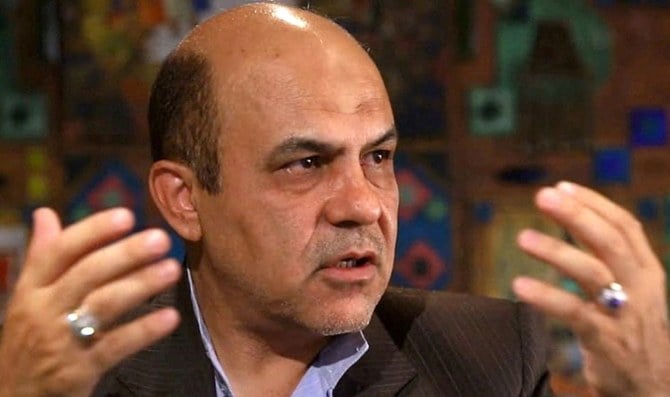
pproaching the Jaguar Land Rover assembly works in Castle Bromwich, the eye is drawn to a 16 metre-high sculpture commemorating the wartime production of Spitfires. In the summer of 1940, this was the industrial site where the fighter planes which won the Battle of Britain were built. A couple of hundred yards down from “Spitfire Island”, a source of 21st-century manufacturing pride is on display. In the “electrification showroom”, a white, gleaming exemplar of Jaguar’s I-Pace series is accompanied by a piece of purple publicity prose: “Bold, brave and undeniably beautiful, the Jaguar I-Pace takes electric vehicle design into a new dimension.”
There are no admiring visitors. JLR’s Castle Bromwich plant, like the rest of British industry, shut down at the end of March. Nearly three months later, the showroom is still closed; beyond it, the vast battleship-grey production blocks, which operate at the cutting edge of Britain’s green technology revolution, are silent. Of the company’s 38,000-strong British workforce, based primarily in the Midlands but also in Merseyside, 20,000 employees have been furloughed. Some plants have reopened with social distancing restrictions, but last week it was confirmed that Castle Bromwich will stay shuttered until at least 10 August.
No one knows if and when production will properly resume, or when demand, which has fallen through the floor, will pick up. Other Midlands manufacturers, including Rolls-Royce in Derby, have already shed thousands of jobs. Meanwhile, JLR is accumulating debt at such a rate that it is seeking state aid worth at least £1bn from the Treasury.
That might seem a great deal of money for the British government to hand a company which is a subsidiary of the Indian giant Tata Motors. On the other hand, as Des Quinn, a Midlands-based manufacturing specialist for the Unite union, points out: “It’s going to cost companies like this billions to invest in green and other future technologies. That’s going to be impossible in the context of Covid. Government is going to need to subsidise. Either it helps to finance business to get ahead in the green race … or it ends up paying people to be unemployed.”
Jaguar Land Rover’s future will be just one high-profile test case as Boris Johnson and his chancellor, Rishi Sunak, attempt to navigate their way through the economic wreckage left by the Covid-19 pandemic. The notion that the state should get its hands dirty in pursuing a proactive industrial policy – “picking winners” as it is sometimes disparagingly described – has been deeply unfashionable in Britain since Margaret Thatcher was in her pomp. But these are extraordinary times; Whitehall assumptions which have dominated policy for 40 years are beginning to look threadbare and dated.
On Monday, businesses in England will take some tentative steps towards post-lockdown recovery, as high street shops begin to reopen and attempt to bounce back amid the challenges of physical distancing. They do so in the shadow of the most intimidating set of economic numbers since the war. On Friday, the Office for National Statistics reported that the economy slumped by 20.4% in the lockdown month of April – the biggest drop since such figures were kept. The grim revelation followed a warning from the Organisation for Economic Cooperation and Development, which predicted that by the end of the year the UK economy is likely to have contracted by 11.5% – a steeper plunge than any of its European neighbours. Unemployment in Britain, the OECD forecast, could be running at close to 12%, as the world endures “the most severe economic recession in a century”.
As private sector plans, projections and presumptions are ripped up and thrown in the bin, the strategic response by government in countries such as France and Germany has been swift. From both Paris and Berlin, the order has come to close ranks around sectors judged vital to the national interest. Along with a €130bn stimulus package announced last week, Angela Merkel has backed a €9bn bailout of Lufthansa. The state will take a 20% stake in the airline until at least 2023, as well as the power to block any hostile takeover attempt in a period of acute vulnerability. More money is available for similar deals in other sectors.
The French president, Emmanuel Macron, has authorised an €8bn aid package for the car industry, including Renault, in which the government already owns a 15% share. As economic wagons are circled, Macron’s finance minister, Bruno Le Maire, has told employers that the state will stand by them, but on condition that vehicle production is gradually “repatriated” to French shores.
Amid post-pandemic concerns over mountains of debt, economic security, the fragility of extended supply-chains and the geopolitical rise of China, the global economy appears to be entering a more cautious era. As societies accord a new priority to resilience against future shocks, the interventionist state, planning on their behalf, is making a comeback.
In post-lockdown Britain, the political battle over what that might mean is just about to begin. The chancellor has already authorised the biggest programme of government subsidies seen in peacetime. On one estimate, almost £90bn worth of taxpayer money has been handed to businesses and employees through the job-retention scheme and various loan packages. Public borrowing, as a result, is at a record high. But eye-wateringly expensive as they were, these measures were conceived as a way of merely keeping businesses afloat during lockdown. The real test, as businesses reopen in a landscape transformed beyond recognition, is yet to come.
Reacting to the latest cascade of dire statistics, the prime minister referred to the heavy cost of lockdown on an economy that has long been dominated by services. But in unprecedented times, can Britain continue to neglect what’s left of a manufacturing base that still plays a vital role in regions such as the Midlands?
Last month, details emerged of a Treasury plan to provide sustained state support for strategically key companies hit by the pandemic, whose collapse would “disproportionately harm the economy”. “Project Birch” could see the government extending long-term loans or taking equity in some of the biggest names in British business. As well as JLR, there has also been speculation that Virgin Atlantic, Rolls-Royce and Tata Steel may become beneficiaries of state intervention.
For a Tory chancellor, such a move would certainly be bold. But according to Will Tanner, a former adviser to Theresa May and director of the centre-right Onward thinktank: “This government is more willing to consider taking a strategic role in industry than has been the case for many years.”
Tanner points to the unsuccessful attempt to prop up Flybe, the regional airline that eventually collapsed at the beginning of March. “The action to support Flybe was overwhelmed by coronavirus,” he says. “But at the time it was significant. It showed a recognition of the value of the company in terms of regional connectivity. The truth is that a government will always be picking winners. It will always be deciding, according to some kind of method. You can’t avoid the political dimension. Taking decisions according to some notion of pure economic value was one reason for the levels of regional disparity that have emerged in our economy.”
Nevertheless, Tanner does not believe that a Sunak-led programme of part-nationalisation is coming any time soon. “The first preference would be for a loan rather than taking equity in businesses. Government has not actually got a good track record at managing large shareholders and representing the interests of taxpayers.”
Unsurprisingly, in Labour ranks, there is a desire for more ambition and daring. One of Sunak’s predecessors, Alistair Darling, recently told the Financial Times: “Taking equity might be a good thing for the taxpayer to do. If you’re lending money, say to an airline, it’s only right the taxpayer gets its fair share of the success at the end.”
The shadow business secretary and former Labour leader, Ed Miliband, believes Project Birch could provide a crucial opportunity to act on lessons already learned during the Covid-19 crisis. “Government must do everything it can to help rescue companies in distress, but the idea that it should just be a kind of ambulance service and then get out of the way is very short-sighted.
“Only in this country are we so blind to the advantages of a strategic industrial policy, in which the public and private sector collaborate together for the greater good. This crisis has shown us the mutual dependency of the public and the private. Industry agreed to shut down to protect public health. The state guaranteed to support industry while it did so. As we emerge, that relationship should continue to be fundamental to the recovery.”
Going back to a hands-off approach would, Miliband says, be to return to a discredited way of doing economics. As in so many other dimensions, the coronavirus crisis has brutally exposed faultlines and weaknesses which were already there. “We know that we had big economic problems when it came to productivity levels, inequality and job insecurity. We know that the manufacturing sector suffered from a financial system that didn’t properly support it and that the economy was unbalanced, in favour of London and the south-east. Returning to the status quo isn’t what’s needed. We will only build the new economy we need with the state playing an active strategic role.”
In Britain’s battered car industry, the need for strategic vision and a steady nerve has never been more pressing. The diesel crisis, Brexit and now the Covid shutdown have left an industry on its knees. “It’s been a perfect storm,” says David Bailey, professor of business economics at the Birmingham Business School. “Covid is probably the biggest challenge the car industry has ever had. Covid plus a no-deal Brexit – and the tariffs that would bring – would be a catastrophe. And in the next 10-15 years, as a result of green targets and automation, there are probably going to be more dramatic changes in the industry than happened over the past 100.”
Bailey would be in favour of the state taking a stake in Jaguar Land Rover: “It would be good to have the government in there as a shareholder, providing finance, helping set long-term directions and keeping business in the UK. And it would lead to better communication and understanding about what the industry needs. For example, Britain has fallen badly behind in the battery manufacturing capacity that we need to compete with Germany and France in the electric-vehicle market.”
What is required, he suggests, is a change of cultural mindset and a belated abandonment of prejudices going back to the 1970s and 1980s.
“There is a future for manufacturing in western economies but here in Britain we developed a cultural problem over it. At the high point of globalisation the assumption became that it would just go elsewhere. It’s worth noting that the French government is more active in Renault and Peugeot than our government is. Or look at Lower Saxony in Germany, which has a stake in Volkswagen.”
There are good reasons why this government in particular may be receptive to such arguments. Boris Johnson’s majority following December’s election was built on gains in Labour heartlands, where many voters still depend on what remains of Britain’s industrial base. In May, a comparative study from the Centre for Economic and Business Research found that the east and West Midlands were suffering most from lockdown. From Coventry to Birmingham to Derby, more than 600,000 employees work in the region’s manufacturing sector, which in turn is heavily dependent on the car industry. The shutdown led to a drop in output of 40%, compared to 28% in London, where a far higher concentration of financial and professional services allowed more employees to work from home.
Last month, local Conservative politicians, including Birmingham’s mayor, Andy Street, wrote to the business secretary, Alok Sharma. Their message was stark: post-Covid economic recovery in the region depended on “bold and decisive” support for key businesses such as JLR.
“If the Conservatives are serious about holding on to the red wall seats they won,” says Bailey, “having a decent industrial policy would be one way to go about it.”
In the British political imagination, the phrase “picking winners” still conjures up sepia images of the beleaguered 1970s governments of Edward Heath and Harold Wilson, sunk by the oil crisis and undone by unruly unions. Over past decades, this folk memory has been offered as a cautionary tale to politicians tempted to dabble in matters best left to the market.
But the legend never told the full story of a turbulent period. If British Leyland, which then included Jaguar and Land Rover among its brands, had not been nationalised in 1975, it is doubtful whether a car industry would have survived in the United Kingdom. As the consequences of the oil shock buffeted western societies, the government acted as a necessary bulwark in dangerous times. Almost half a century later, in the context of a pandemic, economic chaos and an ongoing climate emergency, it may be time for the state to go back to the future.
Europe’s rescue bids
Germany
The German government recently announced a €130bn stimulus package that includes a 3% VAT cut for all goods from 1 July until the end of the year and a payment of €300 to parents for every child. Direct spending and payments to households spread over the next two years amount to more than 3% of German GDP. Angela Merkel’s government has also taken a stake in Lufthansa and set up a €500bn rescue fund for stricken businesses.
France
French finance minister Bruno Le Maire has pledged to invest a total of €521bn into a post-Covid economic recovery programme, raising the national debt to 121% of GDP. President Emmanuel Macron has offered a state-backed credit facility of €5bn to Renault, in which the government holds a 15% stake. Car owners who scrap older vehicles in favour of more efficient models are entitled to a €5,000 rebate. A €1bn fund is being created to boost the car industry and accelerate the transition to electric and hybrid vehicles.
Britain
Chancellor Rishi Sunak has pushed back an emergency budget to the autumn, but is expected to give an economic update in July which could include interim measures to try to kickstart the economy. It is expected that the government will announce tax cuts, new spending on infrastructure and new investment green technology. Under the Project Birch scheme, the government will offer state support to key firms whose failure would have a “disproportionate” impact on the economy.












